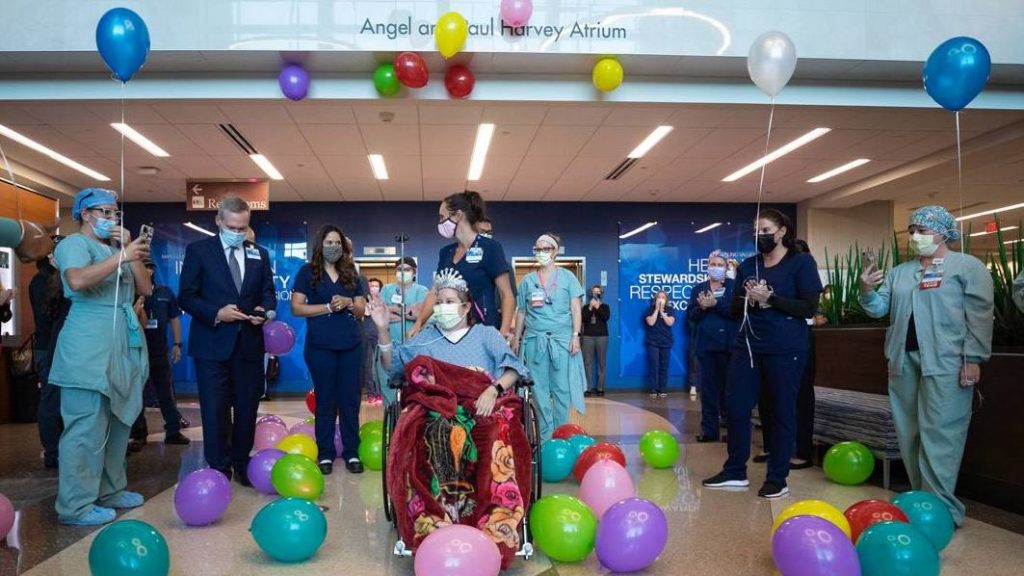
As a mother of three young children, Reyna Lopez took precautions seriously and never thought she would get COVID-19. But when people started to let their guard down, she got sick. Really sick.
"Against all odds" may sound like a cliche. Unless you're the person who beat those odds, and they were really long odds.
That could probably be said of Reyna Lopez, whose trip to a swap meet in early June — after Arizona's stay-at-home order expired and where many weren't wearing masks — may have led to her infection and severe complications from COVID-19.
"I never really believed I would get it," the 31-year-old mother of three tells the Arizona Republic. As a young mother and someone with underlying conditions — asthma, lupus and rheumatoid arthritis — she took precautions seriously. But she and her husband, and their then 11-week-old baby got sick. It didn't take long for Reyna's case to become serious.
"All told, Lopez spent 88 days attached to an artificial lung and was in the ICU for 119 days," the paper reports. "Lopez set a record at the Mayo Clinic Hospital in Phoenix for the length of time she spent on what's known as ECMO — extracorporeal membrane oxygenation, a last-ditch high-level treatment that works like an out-of-the-body, artificial lung."
The reason we are so attached to her and her story is there were times when it was extremely bleak for the whole care team.
Stephanie Blakeman
Reyna was sedated for much of that time, and more than once, the paper reports, her family braced for her death. Admitted to Banner Desert Medical Center Mesa on June 12, she lost consciousness and doesn't recall anything from that day until she woke up in Mayo Clinic Hospital in September.
"Mayo Clinic Hospital typically has the ability to have five patients on ECMO at one time, and it's a major decision whether to connect a patient to one because there are risks involved," Patrick DeValeria, M.D., medical director for Mayo Clinic's ECMO program in Arizona tells the newspaper. Reyna was one of two patients who arrived at the hospital that day on ECMO transport, a carefully orchestrated and technically complex procedure that is offered by few medical centers across the country.
Since September, Reyna has made slow and steady progress and was finally released on Oct. 23. Joyful staff, still healing from Arizona’s surge in cases and bolstered by Reyna’s ability to return to her three children under age 4, celebrated her discharge — socially distanced, of course — like she was part of their own family.
It was a bright point for the team at Mayo Clinic Hospital, according to Stephanie Blakeman, an ICU nurse and coordinator of the ECMO program. "The reason we are so attached to her and her story is there were times when it was extremely bleak for the whole care team," she told the paper. When Reyna came to, "the first thing she asked for was to see her kids. The second thing she asked for was for some food, which was such a fond and light moment."
___________________________________
This article is written by Mayo Clinic staff. For more information and all your COVID-19 coverage, go to mayoclinic.org and the Mayo Clinic News Network.







